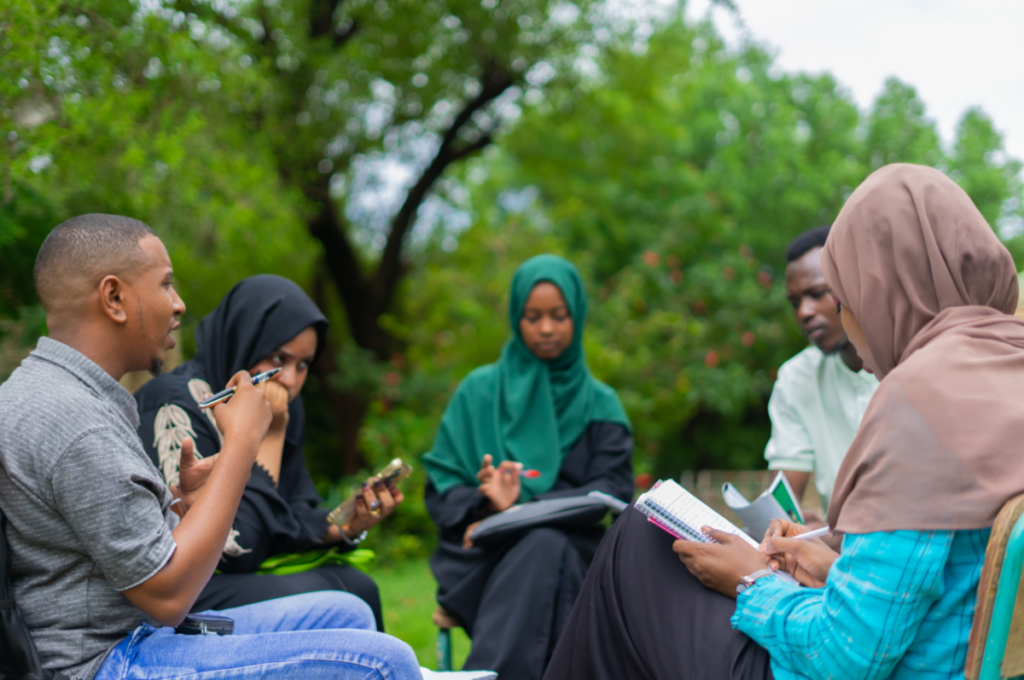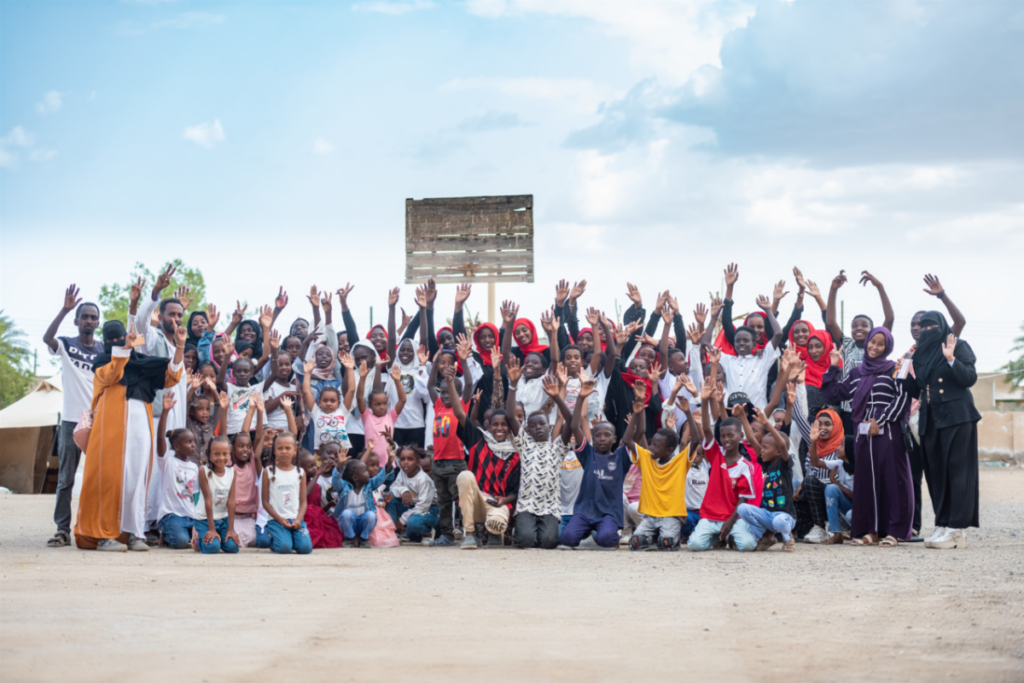Dr Hala Nur, Regional Team Leader, Enabling University Peace Education Project at the British Council.

ADDISS ABABA, Ethiopia, 3 October 2024 -/African Media Agency(AMA)/- Held annually on 21 September, this year’s theme for the International Day of Peace, ‘Cultivating a Culture of Peace’, provides the foundation for us to reflect on the critical role universities can play in fostering peaceful communities. The theme coincides perfectly with the 25th anniversary of the United Nations (UN) General Assembly’s adoption of the Declaration and Programme of Action on a Culture of Peace in 1999, which outlines a vision that emphasises dialogue, respect for human rights and the peaceful settlement of conflicts.
Generally understood as an absence of violence, peace is a multi-faceted idea consisting of abstract concepts, individual and collective experiences and actionable goals. This is why the pursuit of peace, of a more peaceful existence, presents itself as an insurmountable challenge, especially to young people. Over the last three years, however, the British Council’s Enabling University Peace Education (EUPE) project, co-funded by the European Union (EU), has demonstrated that — with the right tools — peace can be taught.
Equipping The Next Generation of Peacebuilders
The EUPE is a transformative initiative that exemplifies the impactful role universities can play in peacebuilding efforts. Since 2021, the initiative has focused on East Africa, partnering with universities in Sudan and Ethiopia, both of which have ongoing conflicts, to equip the next generation with the critical tools needed to become active agents of peace. The project tackles peacebuilding on multiple fronts. It specifically supports the development of high-quality, experiential peace education courses at universities. These courses equip students, many of them young women, with the knowledge and critical thinking skills necessary to understand the root causes of conflict, explore non-violent solutions and strengthen peace research activities with local, regional and international partners. The project further fosters context-driven and gender-sensitive research on regional peace and conflict. This research not only informs future peacebuilding efforts but supports EUPE participants to become active citizens in shaping more peaceful futures for their communities.
A cornerstone of the EUPE programme is its emphasis on social action projects that provide students with the opportunity to apply the knowledge and skills gained in the classroom to real-world situations. In Sudan’s North Kordofan, the Open-Air Dialogue Project (Mending Hearts) brought together street vendors and market visitors to raise awareness about peaceful coexistence. Five graduates from the EUPE Peace Education workshop focused on promoting peace culture in the state’s local markets and advancing community peace education among street vendors. The project was immensely successful and was adopted by local authorities, highlighting the potential for student-led initiatives to create lasting change. Spreading the Culture of Peace was a public three-day event that took place at three Internally Displaced Persons (IDP) camps in the North Kordofan locality. Aimed at promoting a culture of dialogue between young people in the IDP camps and the host communities, it included discussion groups, open-air dialogues and lectures on social peace and cultural issues for young people, fostering an understanding between the two groups of citizens.

Project Name: Promoting Peaceful Coexistence.
In Ethiopia, students aimed to empower youth and faith leaders in Bahir Dar City to work together to promote a culture of peace and non-violence with a social action project named Empowering Youth and Faith Leaders as Catalysts for Peace. The project facilitated interfaith dialogue and mutual understanding between youth and religious leaders, laying the foundation for more sustainable peace in the community. By partnering with faith-based organisations, youth can become more actively involved in peacebuilding efforts, leveraging the organisations’ credibility and resources. Similarly, the Overcoming Barriers to Women’s Participation in Peace Initiatives project introduced a workshop addressing the barriers that hinder women’s participation in peace initiatives in the country, particularly in the context of the recent Pretoria peace agreement. The workshop equipped participants with the knowledge and skills to identify and address these barriers, promoting greater inclusivity in peace initiatives.
These activities, as well as other EUPE social action projects across the two countries, demonstrate the transformative power of social action in fostering peace. Through direct engagement with the communities, the students gained valuable experience, developed a deeper understanding of local challenges and were able to meaningfully contribute to building a more peaceful future.
One Sudanese participant described their transformation after their engagement in the EUPE activities, citing how they went from resorting to violence to embracing peaceful conflict resolution: “The workshop changed my thinking and how I deal with others and myself … after the workshop, I have noticed a change in my way of thinking, and I have also learned from the participants and trainers.” Another highlighted the project’s ability to foster tolerance and understanding, despite not fully participating in the workshop activities. “The workshop affected me greatly,” they said. “I have become tolerant and do not interpret everything with negativity and sad feelings. I learned from the workshop to analyse everything; I live in peace these days.”
In Ethiopia, students spoke of acquiring skills in project design, conflict resolution and fostering dialogue, with one saying, “I now believe I can be part of solving problems in my community and play an active role in making a difference” while another said, “The project helped me broaden my understanding of peace, conflict and conflict resolution.” A third was particularly pleased with the project’s ability to enable them to become an active agent of change: “The EUPE Peace Education training was a game-changer. It gave me skills to combat hate speech, resolve conflicts and foster dialogue. I now truly value peace, grasp conflict dynamics and communicate effectively.”

Building a Global Ecosystem of Peace
The EUPE project serves as a powerful model for universities across the world engaging in discussions about peace and peacebuilding. By integrating peace education, fostering context-specific research and supporting social action projects, universities can equip students with the knowledge, skills and experiences necessary to become active peacebuilders. The pivotal role of universities in promoting a culture of peace by going beyond traditional academic pursuits should not be overlooked. In particular, I believe the following approaches as applied by EUPE can assist in complementing peacebuilding initiatives that are already taking place on campuses:
Encouraging interdisciplinary collaboration that provides a more comprehensive understanding of conflict and its underlying causes, leading to more innovative and effective peacebuilding strategies.
Cultivating stronger ties with the local communities surrounding the university through outreach programmes, volunteer initiatives and community-based research, thus contributing towards breaking down stereotypes, building trust and creating a sense of shared ownership in peacebuilding efforts.
Collaborating with universities across regions provides valuable insight into different cultural contexts and approaches to conflict resolution, facilitating in an exchange of knowledge and best practices.
Integrating peace education into various academic disciplines to help foster a culture of peace within the university community and offering leadership development programmes that focus on peacebuilding skills, such as negotiation, mediation and conflict resolution, thereby developing the leadership potential of students and empowering them to become effective agents of change.
Conducting research on effective conflict resolution strategies to inform evidence-based peacebuilding initiatives and distributing these findings through engagements with policymakers, practitioners and the public as well as participating in public debates and advocating for policies that promote peace and conflict resolution.
Prioritising collaboration and knowledge exchange between the Global North and South to enhance peace education initiatives; developing strong training modules by engaging local writers with support from international experts; and establishing an ethical framework to govern relations between the North and South, ensuring a balanced and respectful partnerships in these efforts.
As we bid farewell to another International Day of Peace, let us celebrate the efforts of initiatives like EUPE and recognise the immense potential of universities to contribute more significantly to the cultivation of a culture of peace. At the same time, I urge governments and funders to collaborate in supporting such interventions to prepare the next generation of active citizens committed to building a more peaceful world.
Dr Hala Nur is an Associate Professor at the University of Khartoum with over 25 years of experience in higher education. She started working as an education consultant at the British Council, Sudan in 2019. In 2020, Dr Nur was appointed Regional Team Leader for the Enabling University Peace Education (EUPE) project, where she led teams in Ethiopia and Sudan.
Distributed by African Media Agency (AMA) on behalf of The British Council.
About the British Council
The British Council builds connections, understanding, and trust between people in the UK and other countries through arts and culture, education, and the English language.
We work in two ways – directly with individuals to transform their lives and with governments and partners to make a bigger difference for the longer term, creating benefits for millions of people all over the world.
We help young people gain the skills, confidence, and connections they are looking for to realise their potential. We support youth to learn English, get a high-quality education, and gain internationally recognized qualifications. Our work in arts and culture stimulates creative expression and nurtures creative enterprise.
We are on the ground in over 20 African countries and deliver impact working with local institutions and partners.
For more information or media enquiries please click here.

